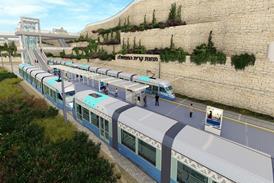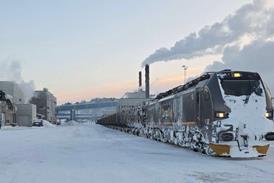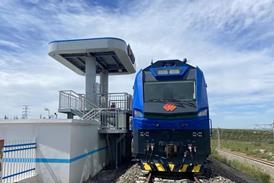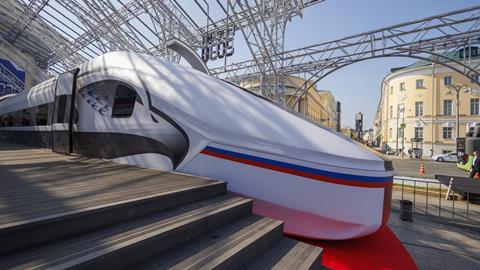
RUSSIA: An agreement has been signed for the supply of 41 trainsets with a design speed of 400 km/h and operating speed of 360 km/h for use on the proposed Moskva – Tver – Veliky Novgorod – St Petersburg high speed line.
They will be branded Bely Krechet (White Gyrfalcon), following the tradition of naming Russian passenger train designs after birds.
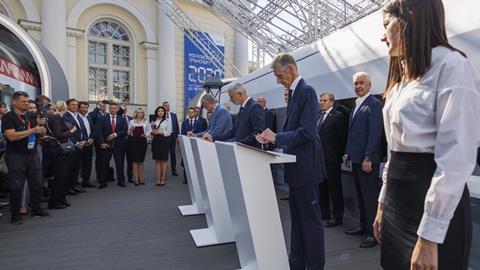
The order was signed by state transport leasing body GTLK and high speed line concessionaire VSM Dve Stolitsy on August 30 when Deputy Prime Minister Vitaly Savelyev and head of Russian Railways Oleg Belozerov attended the unveiling of a mock-up at the Moscow Transport 2030 exhibition. It follows from a 12bn rouble contract for two prototype trains which was signed in April, taking the total order to 43.
Design
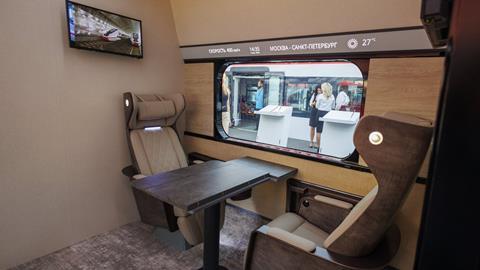
The trainsets are to be built at Sinara Transport Machines’ Ural Locomotives plant near Yekaterinburg. GTLK will act as a technical consultant, and all key components will be manufactured in Russia.
An eight-car set will be able to accommodate 454 passengers. The first class car would have with 15 seats plus a meeting room for four passengers and a compartment suite for two passengers. This business class car would have 68 seats. There would be two standard class cars with a total of 135 seats and four comfort class cars with 230 seats.
They will be designed for Russian conditions, including operating temperatures ranging from -40 to +40°C.
It is envisaged that the designs will be approved in Q1 2026 ready for production of the first prototype by 2027 and the second by the end of March 2028, with the delivery of all 43 sets scheduled by 2030.
The manufacturer will be responsible for the trains throughout their full 30-year life-cycle.
HSR-1 project
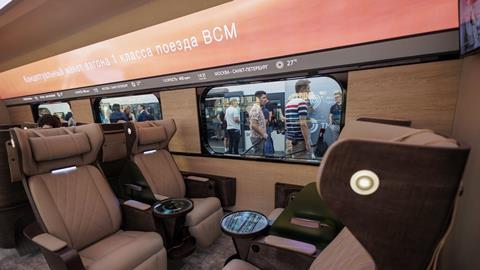
The latest effort to develop a dedicated Moskva – St Petersburg high speed line was formally launched on March 14 when a foundation stone was laid while President Vladimir Putin watched by video link.
The 679 km line would have 14 intermediate stations or loops, handle up to 42 trains each way per day and offer a journey time of 2 h 15 min. It would carry up to 14 million passengers per annum.
The total cost of the HSR-1 project is estimated at 2·12tr roubles, of which 228bn roubles is for the rolling stock.
‘In August 2023, Russian President Vladimir Putin approved a plan for the development of high speed rail service in Russia, according to which five huge projects are to be implemented — they will cover and ensure the movement of approximately 80% of the country’s population’, said Savelyev. ‘The Moskva – St Petersburg high speed railway will give a serious boost to the Russian economy, and will also contribute to increased connectivity of territories and increased mobility of passengers and goods.’

